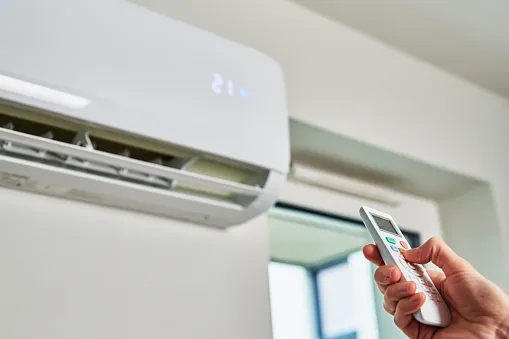The latest comprehensive research report on the air conditioning (AC) market forecasts substantial growth through the coming decade, driven by increased global temperatures, urbanization, and advancements in energy-efficient technologies.
Market Overview
The air conditioning market is experiencing robust growth, fueled by rising demand in both residential and commercial sectors. As global temperatures continue to rise due to climate change, the need for effective cooling solutions has become more acute, thereby driving market expansion. Moreover, rapid urbanization in emerging economies and increased infrastructure development worldwide have further propelled the demand for air conditioning systems.
Technological Advancements
Recent technological advancements have revolutionized the AC market, with manufacturers focusing on energy-efficient and environmentally friendly products due to stringent environmental regulations and growing consumer awareness of sustainability issues. Innovations such as inverter-based systems, smart thermostats, and air purifying technology are becoming standard features in new AC units. Additionally, the integration of Internet of Things (IoT) technology has enabled features like remote diagnostics, real-time control, and efficiency optimization, enhancing user convenience and operational efficiency.
Regional Insights
The Asia Pacific region currently leads the global market, driven by rapid economic growth, rising living standards, and the increasing prevalence of heatwaves, particularly in countries like China and India. North America and Europe also hold significant shares of the market, supported by high living standards and the replacement of older, less efficient systems with new, technologically advanced units.
The Middle East and Africa (MEA) are expected to witness substantial growth in the air conditioning market, primarily due to the extreme climatic conditions and ongoing infrastructure developments in the region.
Competitive Landscape
The global air conditioning market is highly competitive with a mix of established players and new entrants. Leading companies such as Daikin Industries, Carrier Global, LG Electronics, Mitsubishi Electric, and Samsung Electronics dominate the market. These companies are consistently investing in research and development to innovate and improve their product offerings. Strategic mergers, acquisitions, and partnerships are also prevalent strategies for expanding market presence and enhancing product portfolios.
Market Challenges
Despite the strong growth prospects, the air conditioning market faces challenges related to environmental concerns and the need for sustainable practices. The high energy consumption of AC systems and their impact on global warming through refrigerant emissions are significant issues that are being addressed through regulations like the Kigali Amendment to the Montreal Protocol.
Future Outlook
Looking ahead, the air conditioning market is expected to continue its growth trajectory, with an increasing focus on sustainable and smart air conditioning solutions. As technology continues to evolve, the integration of AI and machine learning could lead to further enhancements in efficiency and user experience.


